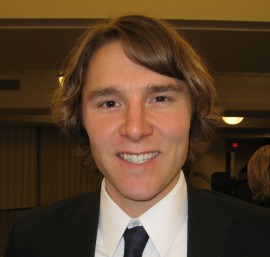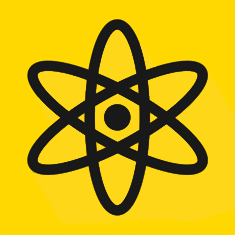Alumni Interview: Paul Albertus
We interviewed alumnus Paul Albertus 14 years after he graduated, and was a member of the initial AdamBots team in 1999. Paul Albertus answered our questions about his life after the robotics team and how his experiences as an AdamBot affected him and what he learned.
1. What years were you on the team and what did you do?
I graduated from Adams in 1999 and only did FIRST one year, so that must have been in 1999. I was involved in the design of the robot, and in particular on a ladder mechanism that we used in the robot for elevating objects in the game.
2. Where did you go to school and what were your majors?
I did my undergrad at the University of Michigan in Chemical Engineering, and then went on for a PhD at UC Berkeley, also in Chemical Engineering.
3. How did your experience on the AdamBots affect your choice of profession?
I had a great time on the FIRST team, and I think it did reinforce my interest in science and technology. I don’t think it specifically influenced me towards electrical or mechanical engineering (two of the areas where robotics is focused on most directly), but it did have some influence on me pursuing engineering.
4. Why did you join the robotics team?
Before high school I had done a lot of Odyssey of the Mind, and I think that there are some similarities between that and FIRST. In any case, I knew that I enjoyed being part of a team working on technical problems, and FIRST certainly fit that bill.
5. What was your best memory of the AdamBots?
I have a number of good memories. There was a really fun mentor that we worked with — Paul Slaby — who made the experience very enjoyable and interesting. Working on the robot design was also a good memory, as were other members of the team.
6. Do you have any words of wisdom for the current members of the AdamBots?
A lot of what you learn in the FIRST competition is very relevant in later stages of life!
A few examples of what I learned in FIRST that has applied to my later stages of life:
– Teamwork is very important. Although it takes a lot of effort to make a team function well, ten people working well together can achieve far more than just one.
– It’s important that a project is exciting and has compelling emotional aspects in order for team members to become engaged and work together well. The excitement that FIRST generates helped teach me this lesson.
– The best projects happen when there are a variety of types of people involved. In other words, there are a lot of benefits that come from having people of different backgrounds involved in a FIRST team.
Written by Grace Nguyen



